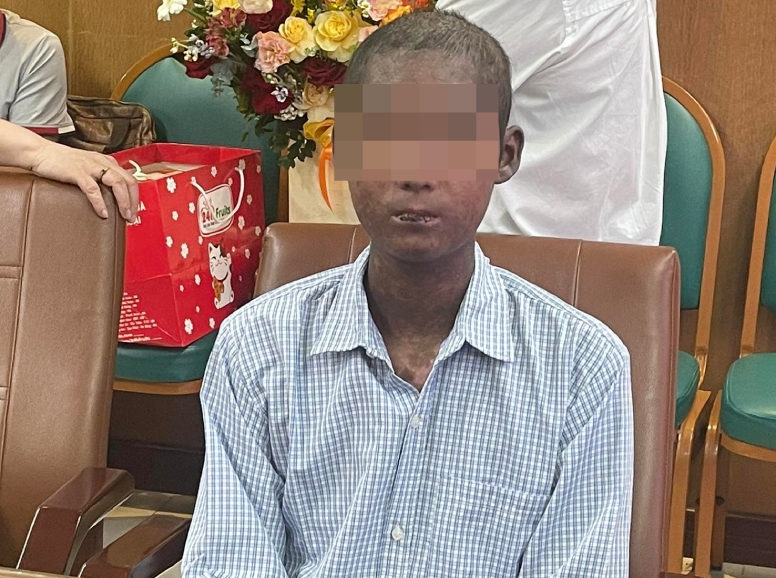
On June 27, Bach Mai Hospital (Hanoi) reported a rare case successfully treated after seven months of complex challenges.
Since November 2023, N.Q.T. (19 years old, from Sam Son city, Thanh Hoa province) had been experiencing ulcers on the oral mucosa and purple-red patches, and blisters scattered across his body.
Upon examination, doctors discovered a large retroperitoneal tumor. The patient was initially treated at Hoa Binh Provincial General Hospital and the Central Dermatology Hospital before being admitted to Bach Mai Hospital on December 13, 2023. Based on skin biopsy results, doctors diagnosed T. with toxic epidermal necrolysis.
In January 2024, the diagnosis was updated to Pemphigus paraneoplastic, coupled with bilateral ureteral stones, and a JJ catheter was placed. His physical condition was extremely poor. "Pemphigus paraneoplastic is a rare disease, not yet found in Vietnamese medical literature. Globally, it affects 1 in 1 million people," said Dr. Tran Thi Quyen of the Dermatology Department at Bach Mai Hospital.
Due to his poor condition, surgery was postponed, and the patient was discharged for nutritional supplementation. However, three days later, his condition worsened.
From April 2024, the patient experienced new outbreaks, including fever, widespread skin erosion, and oral mucosal ulcers. He required plasma replacement, nutritional treatment, and antibiotics. On May 29, doctors deemed him fit for surgery to remove the tumor. After nearly one month, on June 27, doctors re-evaluated his condition and discharged him from the hospital.
Dr. Tran Thi Quyen highlighted the numerous challenges faced during treatment due to polymorphic lesions, inconsistent histopathological results, and the rarity of the disease. Continuous consultations and extensive research were necessary for an accurate diagnosis.
The patient’s care and treatment were complicated by his poor response to conventional immunotherapy, resulting in significant weight loss of 10kg/month. He frequently suffered from bacteremia and urinary tract infections caused by multi-resistant Pseudomonas aeruginosa, which has a high mortality rate.
Intensive care was provided at the Emergency Resuscitation Center and the Dermatology Department. At times, the patient's family requested to take him home, but doctors encouraged them to continue treatment at the hospital.
By the end of the treatment, patient T. received nearly 700 million VND from health insurance, with his family covering more than 53 million VND. Additionally, the Social Work Department of Bach Mai Hospital raised nearly 65 million VND from the community to support the patient.
Phuong Thuy